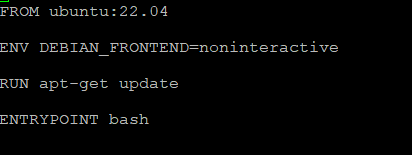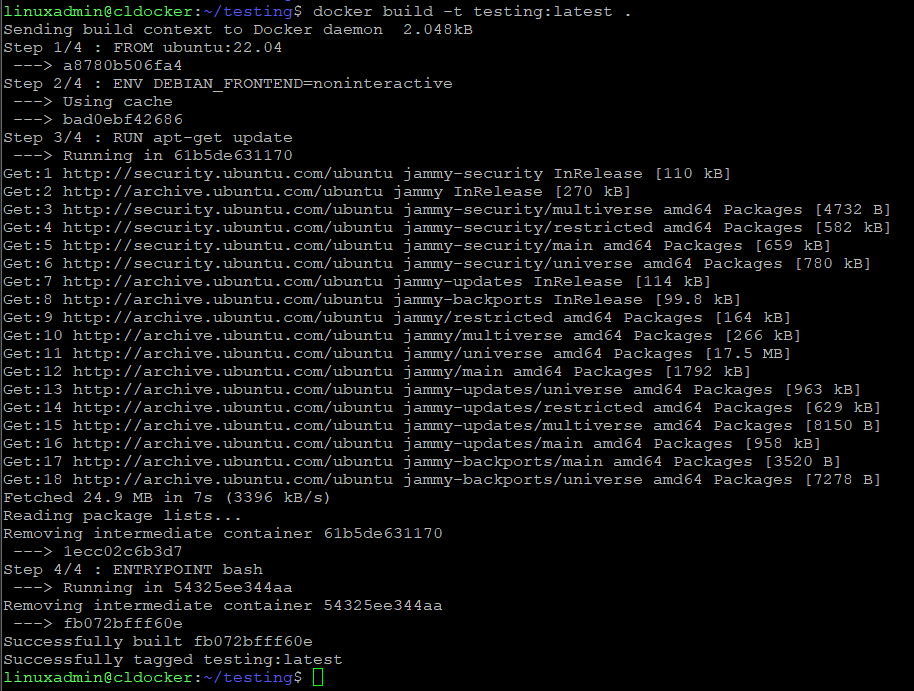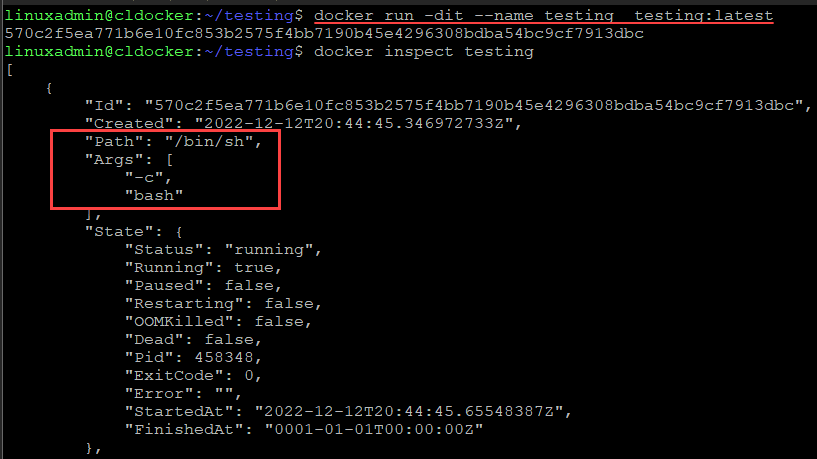In working with Docker, there are various ways to run commands and allow your Docker image to spin up as a new container using the docker run command. There are a few constructs with the Docker run command you can use to change the behavior of your Docker container when the Docker container starts. Let’s look at the Docker override entrypoint command line parameters and see how we can pass cmd and entrypoint instructions. Let’s first look at several Docker basic commands and what they do.
What is the Docker run command?
The Docker run command is the command you use to create a new container with the image name passed in the docker command, and then it starts using the specified command.
You can use the docker run command in conjunction with the docker commit. According to Docker documentation, it is the same as the API /containers/create.
What is a Docker entrypoint instruction?
Docker containers have an entrypoint instruction used to set executables in the configuration that always run when the container is initiated in Docker. The entrypoint instruction like the CMD instruction, is used to tell Docker which command needs executed when the container starts.
What is a Docker CMD instruction?
Docker CMD defines the default executable of a Docker image. The CMD instruction is used when there is no argument added to the docker run command. When you add arguments to the command, you override CMD instruction.
Using the Docker CMD and Entrypoint instructions together
You can use both the Docker CMD and Entrypoint instructions together. You can define the command with entrypoint and then use CMD instruction to define the additional parameters you want to pass to the command. Note these are in json array format for the exec form.
FROM ubuntu:latest
RUN apt-get update
ENTRYPOINT ["echo", "Entrypoint"]
CMD ["CMD"]Difference between entrypoint instruction and CMD instruction
What is the difference between the entrypoint option and the CMD instruction? The difference between the two is that you can override the CMD instruction from the Docker CLI when the container is running. However, you can’t override entrypoint with command line parameters.
Using entrypoint in a Dockerfile
Using an entrypoint in your docker file is as simple as just using the directive to pass a default cmd or executable file in your container.
Docker build with your entrypoint
You can build your container using the Docker file above with an entrypoint, defining the command output you want to define as shown in the example. Note the following command showing the Docker build command to build a test image:
How to Override entrypoint
You can use the –entrypoint parameter to override the entrypoint with a docker run command.
docker run --entrypoint [override command] [docker image] [another value]
sudo docker run --entrypoint /bash -dit testing:latestNote the container that I have spun up with the Docker file entrypoint active, seen with the docker inspect command.
Now, if we override the entrypoint command while running the docker run command, we can change the default command. I am launching the same container image with docker run, but override entrypoint command, pointing to a different command or script:
docker run --entrypoint /bin/bash -dit --name testing --restart always testing:latest -c "/usr/sbin/service mysql status"If you get an error response, check your command syntax to make sure such file exists and the cmd value is ordered in the right way.
Note if you have misordered the command like I have below, you will see the OCI runtime error and no such file or directory unknown error.
Docker CMD and Entrypoint FAQs
What is an entrypoint? The entrypoint allows specifying a default command to run as part of your container image. However, you can also specify the entrypoint by overriding the entrypoint when you issue the Docker run command.
What is a CMD? The CMD can also specify the default command to run. However, it can be used in conjunction with the entrypoint command to pass in parameters.
What is a Docker file? A Docker file allows building docker containers, specifying commands, installing software, setting configurations, etc.
Wrapping Up
When working with Docker containers, both the CMD and entrypoint commands are important to understand and leverage as part of your Dockerfile and your docker run commands, allowing you to set the default executable file in your Docker environment. Overriding your entrypoint command is a great way to make changes without rebuilding your container image if you need to specify a different command as you run a new Docker container.






0 Comments